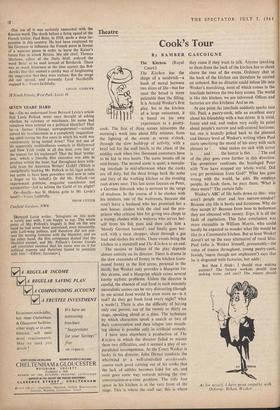SIR,—Do we understand from Bernard Levin's article that Louis Pollock
never once thought of asking whether, by calumny or mischance, his name had somehow been entered on a political blacklist? That he—a former Chicago newspaperman! —actually nursed his bewilderment in a completely unquestion- ing spirit during the five years in which his work was continuously being turned down? That not one of his apparently multitudinous contacts in Hollywood and New York could, in all this time, even hint at the reason for his exclusion? That the final 'revela- tion,' which a friendly film executive was able to produce within the hour, had throughout been with- held from the American Writers' Guild? (Which is energetically backing Mr. Pollock in his legal action, but seems to have been powerless until now to raise a finger on his behalf.) Or did Mr. Pollock—an experienced publicist, magazine contributor and screenwriter—fail to inform the Guild of his plight?
Or—finally—has St. Helena gone to Mr. Levin's head?—Yours faithfully,
FRANK LITTLER
Canfield Gm-dens, NW6
[Bernard Levin writes: 'Smugness on this scale is rarely met with, I am happy to say. The whole point of Mr. Pollock's tragedy is that on the one hand he had never been associated, even innocently, with Left-wing politics, and therefore did not con- nect his waning fortunes with the blacklist; and on the other hand, the film companies denied that the blacklist existed, and Mr. Pollock's former friends and associates assumed that his name was on it for political reasons and therefore feared to associate with him.'—Editor, Spectator.]


























































 Previous page
Previous page